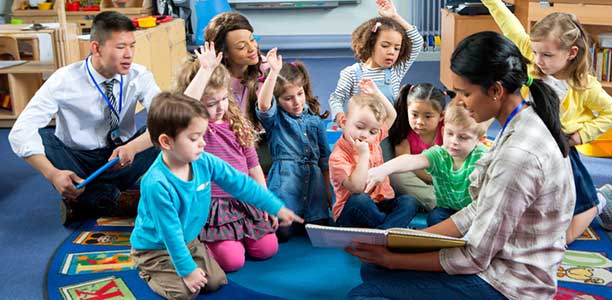To improve the academic results of Australian schoolchildren comparative to their international fellow students, the best place to invest is in early childhood education.
So argues Andreas Schleicher, Director for Education and Skills, and Special Advisor on Education Policy to the Secretary-General, at the Organisation for Economic Co-operation and Development (OECD) in Paris.
Mr Schleicher, a statistician and researcher in the field of education, coordinates the OECD’s Programme for International Student Assessment (PISA) which compares, country-by-country, the academic performance in maths, science and reading of 15-year-olds around the world.
Having watched Australia’s performance in PISA slide over the past 10 year, he argues that what Australia needs to do to turn that performance around is not necessarily to invest more money in education, but to invest it in the right places.
And the area where the nation can get the biggest return on its education investment is in the early years of a child’s life.
Mr Schleicher was a keynote speaker at the 2017 Early Start Conference at the University of Wollongong (UOW) from 27-29 September.
He was joined at the conference by early childhood experts from around the world, representing a variety of disciplines including education, psychology and health sciences.
The conference presented innovative interdisciplinary research findings and provide a framework for discussion around best policy and practice to assist children to flourish and realise their potential in areas such as school readiness, physical activity and health, information and communications technology, literacy and numeracy, social inclusion and Indigenous education.
Other topics explored in conference talks included how best to support the inclusion of special-needs children, men in early years education, the benefits of building challenging and risky learning spaces, and the effects of preschool music programs on children’s oral language skills.
The conference theme, “Helping Children Flourish and Realise Their Potential: Translating Research for Policy, Practice and Community”, reflects the values at the core of Early Start’s mission.
Early Start’s research efforts are founded in a commitment to bringing together academics from across discipline boundaries and investing in relationships and partnerships that will cultivate best practice and innovation and ultimately improve early childhood policy and practice, with a particular focus on bringing about better outcomes for children from regional, remote and disadvantaged backgrounds.
Early Start Director of Research Professor Tony Okely said it was an exciting time to be involved in Early Years research, policy, and practice.
“The global conversation has shifted recently towards the importance of investing in the early years. Governments are focusing on how they can better invest in the early years based on the overwhelming evidence that shows the long-terms benefits of exposure to high-quality home and education and care environments.
“Early Start’s vision is for children to flourish, be active learners and become engaged members of society. We aim to influence policy and practice through interdisciplinary research and intersectional collaborations that improve knowledge and understanding of child development, health, and learning.”
(Source: University of Wollongong)










